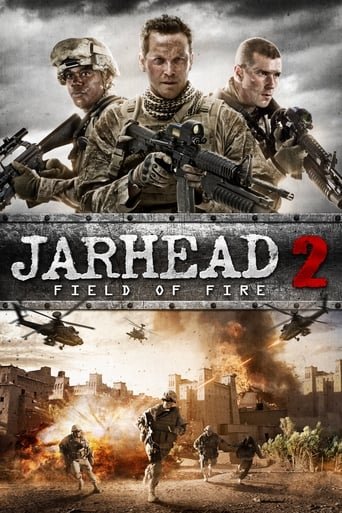
The Jarhead films, beginning with the 2005 adaptation of Anthony Swofford's memoir, offer a compelling, albeit controversial, perspective on the Iraq War and its profound impact on the young Marines who fought in it. While not strictly a war film in the traditional sense, focusing less on large-scale battles and more on the psychological toll of prolonged deployment and the mundane realities of waiting, Jarhead succeeds in capturing the unique anxieties and frustrations of a generation of soldiers.
The first Jarhead film, directed by Sam Mendes, masterfully portrays the intense boredom punctuated by moments of terrifying violence that defined the early stages of the Iraq War. Swofford's experiences, meticulously translated to the screen, highlight the psychological strain of being constantly on edge, anticipating an enemy that often remains unseen.
The film's depiction of the Marines' training and their camaraderie is equally compelling. The intense bonds forged during training and sustained through shared hardship are palpable, providing a counterpoint to the isolating nature of the war itself. The film subtly explores themes of masculinity, loyalty, and the complexities of military culture, revealing the internal struggles and contradictions of these young men.
The subsequent Jarhead films, while less critically acclaimed, continue to explore the themes established in the first installment. They delve further into the long-term consequences of war, examining the challenges faced by veterans upon their return home and the lasting psychological scars of combat. These films, while perhaps not as artistically refined as the original, contribute to a broader conversation about the human cost of war and the need for comprehensive support for those who have served.

ANTHONY SWOFFORD, a prominent American writer and former U.S. Marine, was born on August 12, 1970, in Fairfield, California. Raised in a military family, his father, a Vietnam War veteran, instilled in him a sense of duty and discipline. This early exposure to the military life ignited a desire within young Swofford to follow in his father's footsteps.
At the age of 18, Swofford enlisted in the Marine Corps, eager to experience the challenges and camaraderie of military life. His journey as a Marine led him to serve as a scout-sniper during the Persian Gulf War. This intense experience, marked by long periods of boredom punctuated by moments of extreme danger, would profoundly shape his future as a writer.
Upon his return from the war, Swofford embarked on a literary career, drawing inspiration from his military experiences. His groundbreaking memoir, "Jarhead," published in 2003, offers a raw and unflinching portrayal of life as a Marine. The book delves into the psychological and emotional toll of war, exploring themes of boredom, camaraderie, and the blurred lines between reality and illusion. "Jarhead" garnered critical acclaim and popular success, earning a place on the New York Times Best Seller list.
The impact of "Jarhead" extended beyond the literary world. In 2005, the memoir was adapted into a critically acclaimed film directed by Sam Mendes. The film, starring Jake Gyllenhaal as Swofford, further solidified the book's cultural significance and introduced its powerful narrative to a wider audience.
Swofford's literary contributions extend beyond "Jarhead." His subsequent works, including the novel "Exit A" and the memoir "Hotels, Hospitals, and Jails," continue to explore the complexities of human experience and the enduring impact of war. His writing style, characterized by its unflinching honesty and vivid imagery, has solidified his reputation as a significant voice in contemporary American literature.













